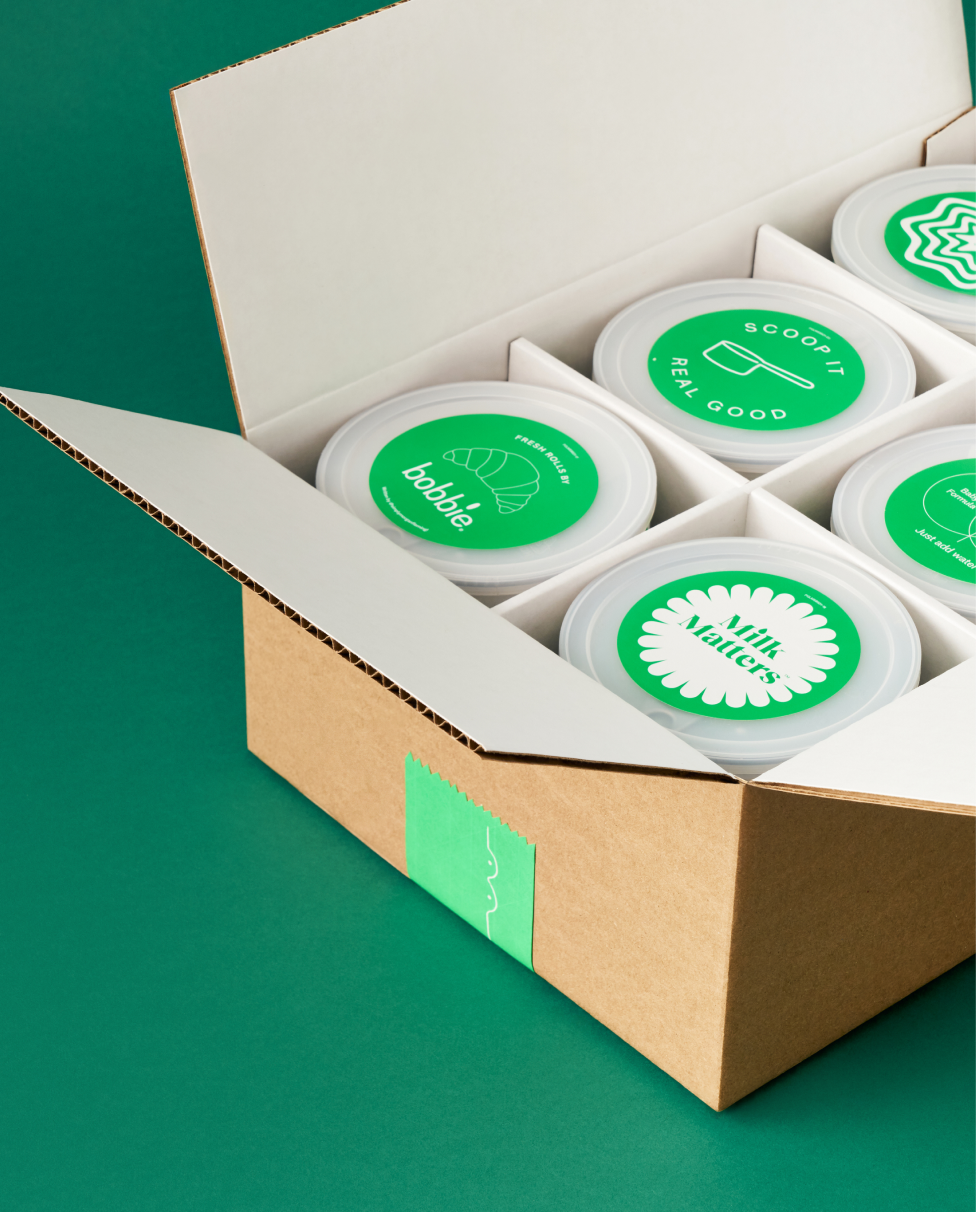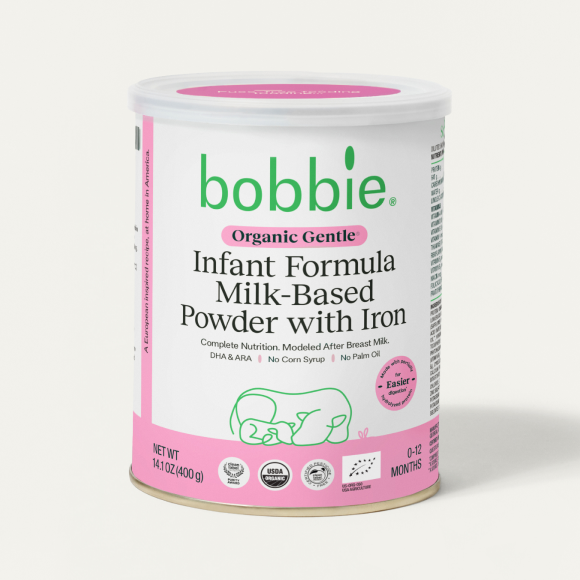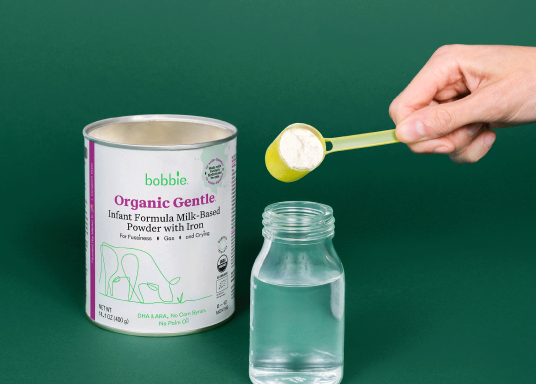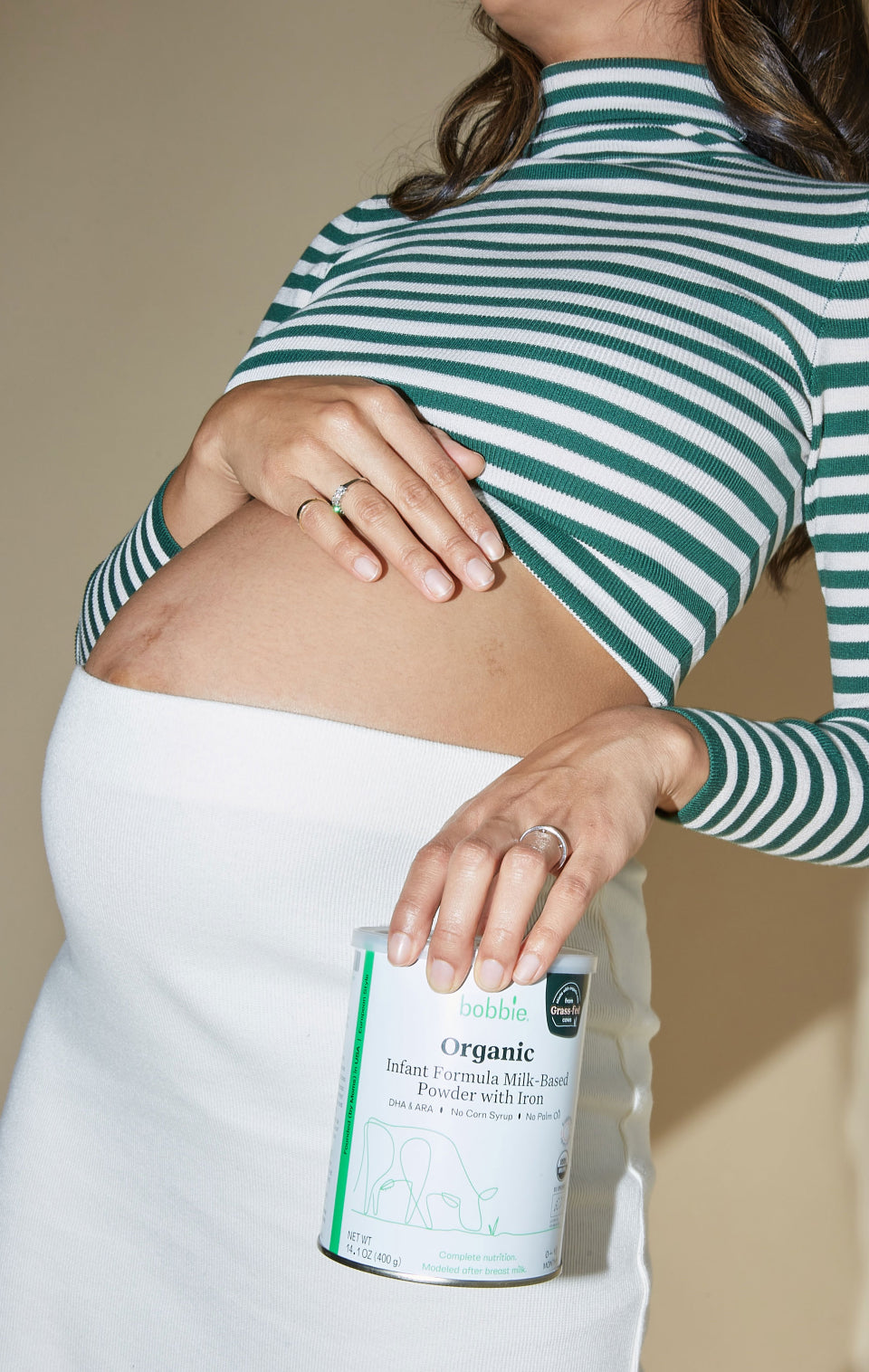Published April 15, 2025

Round Ligament Pain in Pregnancy: What It Feels Like and How To Find Relief
Feeling a sudden twinge or sharp ache in your lower abdomen during pregnancy? Don’t worry — you’re likely experiencing round ligament pain, a common yet uncomfortable symptom. While it can catch you off guard, rest assured, it’s usually a normal part of your body making room for your growing baby. Still, we understand that any new sensation in pregnancy can bring questions.
Read on for a closer look at what round ligament pain feels like, how to ease the discomfort and when it’s a good idea to check in with your provider — just to stay on the safe side!
What Is Round Ligament Pain?
Round ligament pain is often an unexpected pregnancy symptom that might feel like a quick jab or a dull ache in your belly, hips or groin. What’s going on? As your baby develops, two stretchy, rope-like ligaments that support your growing uterus are being pulled and tugged — especially when you move suddenly. Fortunately, it’s totally normal and just another part of your journey to motherhood.
What Round Ligament Pain Feels Like
Round ligament pain symptoms tend to show up during the second trimester (weeks 14 to 27), though they can start a little earlier or later, depending on your body. You might feel the pain low in your pelvis or down in your groin area — and it can show up on one side or even both. It’s often described as:
-
A dull ache
-
Cramping
-
Muscle-like spasms
-
A sharp, stabbing or pulling sensation
The feeling typically lasts just a few seconds or minutes and might come and go, but it’s all part of your body adjusting to pregnancy!
What Causes This Pregnancy Pain?
As your uterus grows, the surrounding ligaments stretch to support your expanding belly — getting longer and wider in the process. That added tension can lead to aches. Normally, these ligaments contract and relax slowly, so when you move suddenly, they’re forced to react faster than they’d like; that’s when the pain can hit.
Some of the most common triggers for this pregnancy symptom include:
-
Changing positions (e.g., standing up too quickly)
-
Rolling over or getting out of bed
-
Sneezing, coughing or laughing
-
Exercising


Your go-to resource for all things new baby.
Sign up to get the scoop on feeding, sleep, poop, and so much more.
By singing up for email, you are to receive marketing emails from Bobbie and can manage your email preferences or unsubscribe at anytime
What Could Be Mistaken for Round Ligament Pain?
While round ligament pain is common in pregnancy, it can be tough to distinguish from other discomforts. Understanding the differences can help you pinpoint the cause and find the right relief.
Round ligament pain may be confused with:
-
Braxton Hicks Contractions: These irregular, practice contractions often feel like tightening or cramping in your lower abdomen. Unlike round ligament pain, they don't typically come with sharp, stabbing sensations and are pretty brief.
-
Pelvic Girdle Pain: This discomfort is generally felt in the lower back or hips and can be more constant than round ligament pain, which tends to be sharp and sudden.
-
Gas, Bloating or Digestive Issues: These symptoms can cause similar sharp pains in your abdomen. However, they’re generally more persistent and linked to digestive issues rather than stretching ligaments.
-
More Serious Concerns: While rare, conditions like preterm labor or appendicitis can present with symptoms similar to round ligament pain. If pain is severe or persistent, it’s important to reach out to your medical provider for more guidance.
Ways To Ease Round Ligament Pain During Pregnancy
We know round ligament pain can be uncomfortable for expecting moms, to say the least. Here are a few simple strategies to help ease the discomfort and make this stage of pregnancy a bit smoother:
Gentle Stretches and Prenatal Yoga
Gentle stretching and prenatal yoga are safe exercises that can relieve tension in your ligaments. Focus on moves that target your hips, lower back and pelvis to keep your body flexible and relaxed.
Good Posture and Body Mechanics
Maintaining good posture and being mindful of your body mechanics can help prevent additional strain on your ligaments. Stand tall, avoid slouching and use your legs (not your back) when lifting or bending. These small adjustments can make a big difference!
Supportive Belly Bands
A maternity belt can provide gentle, supportive pressure on your belly, helping to alleviate round ligament discomfort. These bands can be worn throughout the day for extra support as your body adjusts to your growing uterus.
Applying Warmth
A heating pad or warm bath can offer soothing relief by improving circulation and relaxing tight muscles. Just be sure the heat is warm, not hot, to avoid overheating or skin irritation.
Resting and Moving Slowly
Take it slow when moving — sudden motions can trigger pain. Rest when needed and move carefully to avoid unnecessary strain.
What’s most important is listening to your body. If you feel discomfort, try slowing down, gently stretching or simply resting to help manage the pain. If it becomes severe or lasts more than a few hours, don’t hesitate to reach out to your healthcare provider for further guidance and support.
Round Ligament Pain FAQs
Round ligament pain can be tricky to navigate, especially when it overlaps with other pregnancy symptoms. Let’s break down some common questions you might have as your pregnancy progresses:
Does Round Ligament Pain Typically Get Worse As Pregnancy Progresses?
It can. As your baby grows and your uterus expands, the round ligaments stretch more. So, you might notice the discomfort becoming more frequent or intense during the second and third trimesters.
Can Round Ligament Pain Happen While Sleeping?
Yes, shifting positions in bed or even stretching while you sleep can trigger that sudden, sharp sensation — especially if you move too quickly. The Cleveland Clinic recommends lying on your side with your legs drawn up and a pillow between your knees. A second pillow under your belly can also provide relief.
Does Hydration Help With Round Ligament Pain?
According to MiracleCord, dehydration can lead to muscle cramps and tension, which can make ligament pain worse. Staying hydrated keeps your muscles and ligaments more flexible, so make sure to drink plenty of water!
Can Stress or Anxiety Make Round Ligament Pain Worse?
The American Psychological Association reports that muscle tension is often a natural reflex response to stress. That means stress and anxiety can absolutely make round ligament pain feel more intense. Taking deep breaths, moving gently and making time for self-care can help ease the discomfort.
Does Round Ligament Pain Continue After Delivery?
Nope! The pain usually goes away once your uterus shrinks back to its pre-pregnancy size. If you’re still feeling it postpartum, it’s worth checking in with your healthcare provider.
Could Round Ligament Pain Indicate a More Serious Issue?
While it’s usually harmless, pain that’s severe, persistent or comes with other issues — like fever or vaginal bleeding — should always be discussed with your healthcare provider!
Trust Your Body and Find Relief
Round ligament pain might be a normal part of pregnancy, but that doesn’t make it fun. The good news? A few simple changes can help you find relief. Keep tuning into your body, and reach out to your provider if something feels off! And once your little one arrives, Bobbie’s got your back with high-quality, organic infant formula to support you through every step of your motherhood journey.
Shop Bobbie Organic Infant Formula today!

Shop Bobbie Organic Infant Formula
Bobbie Organic Infant Formula is a USDA Organic, EU-style infant formula that meets all FDA requirements. It is a complete nutrition milk-based powder modeled after breast milk and is easy on tummies. It is non-GMO and doesn't have corn syrup, palm oil, or maltodextrin. Shop Bobbie today!

The content on this site is for informational purposes only and not intended to be a substitute for professional medical advice, diagnosis or treatment. Discuss any health or feeding concerns with your infant’s pediatrician. Never disregard professional medical advice or delay it based on the content on this page.













